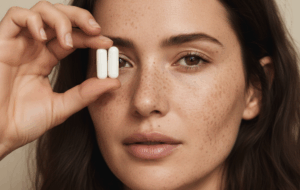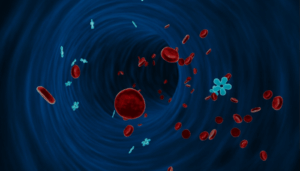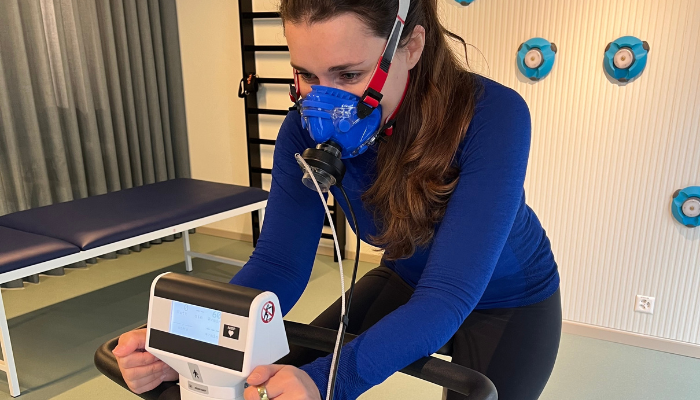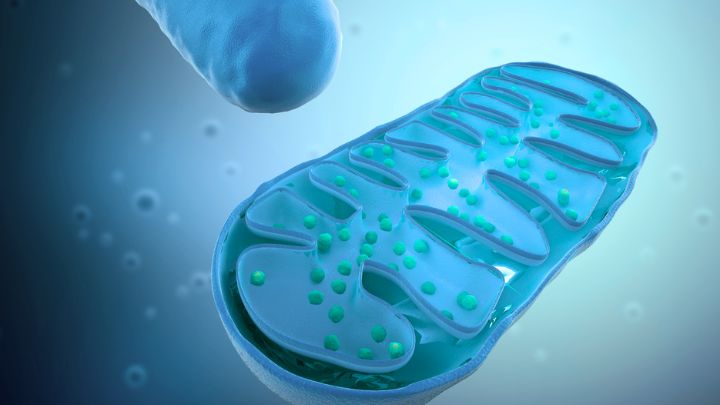Everybody is talking about Omega-3 supplements, but do we all need them? Harvard paints out a clear picture– a lack of Omega-3, slowly leads to health issues later in life. These essential nutrients are crucial for your brain, heart, and metabolism. Yet, over 90% of the population is deficient in Omega-3.

What’s the secret of the lucky 10%? Dive in to discover Omega-3 benefits. At Avea, we aim to bring you the latest cutting edge insights, on how to add years to your life, and vitality to those years.
In this article
Free guide to reverse your biological age

- Master the science of rejuvenation.
- Apply proven tips to turn back the clock.
- Transform your health with top longevity specialists.
What are Omega-3 fatty acids?
Imagine you’re building a huge LEGO castle. You need different types of blocks. Different shapes, different colours, all for different parts of the castle. Well, the same applies to your body.
Proteins are the well-known superheroes. But if you’ve paid enough attention to your biology teacher in high school, you’ll probably remember the term ‘’fatty acids’’ too. Omega-3 is a special type of fatty acid.
They exist as short chain ones– known as ALA and long-chain ones– known as DHA and EPA. Forget the technical terms, all you have to remember is that our body can’t make them on their own. Omega-3 fatty acids need to be consumed from nature!
Where can you find Omega-3 fatty acids?

Omega-3 fatty acids come from both plant-based and marine sources, making it possible for everyone—regardless of diet—to meet their needs.
This is because plants are the primary source of Omega-3. They are produced via photosynthesis, particularly in microalgae.
Omega-3 then moves up the food chain– from smaller fish and sea creatures, to bigger fish and seafood that sit at the top of aquatic ecosystems.
Omega-3 foods
To get sufficient omega-3 from your diet, include:
- Fatty fish: Salmon, sardines, mackerel, anchovies are rich in long-chain omega-3 fatty acids DHA and EPA
- Nuts and seeds: Flaxseeds, chia seeds, walnuts, hemp seeds provide short-chain omega-3 fatty acids, known as ALA
- Algae oil: A vegan-friendly source of DHA and EPA
Whilst ALA can be obtained from plant-based foods, an extra effort is needed to ensure you get enough EPA and DHA—either through diet or supplements. Your body can convert ALA into DHA and EPA, but the process is not very efficient.
Omega-3 benefits

Omega-3 fatty acids are great for our mental and physical health. Countless studies show how they
- support integrity of our cell membranes, enhancing healthy growth and development of our cells.
- help build and protect our heart, and keep our brain sharp and creative.
- boost our immune system, keeping us away from infections and inflammation.
- promote a natural glow, healthier hair, as well as a positive mood.
- enhance our sleep quality by relaxing our nervous system and regulating our sleep hormone ‘’melatonin’’.
Signs that you are Omega-3 deficient
Certain lifestyles or diets, especially those rich in red meat or low in healthy fats, can lead to Omega-3 deficiency. If you tick most of the following, you might need to reevaluate your Omega-3 intake:
- brittle nails, lifeless hair or dry skin
- constant fatigue
- poor concentration
- joint pain
- insomnia.
- attention, learning, or short-term memory problems
- depression, anxiety, aggressive behaviour, anger, or suicidal thoughts
Long term deficiencies can lead to severe health issues, including heart problems and high cholesterol, cognitive decline, and memory loss.
The best Omega-3 supplement: 100% vegan
Ensuring daily, sufficient amounts of Omega-3 is essential for a healthy life, away from age-related diseases.
Thanks to science and technology, we are now able to source Omega-3 fatty acids directly from algae rather than fish oil.
Our innovative Licaps® capsules are an ideal, vegan sourced, 2:1 EPA and DHA ratio of Omega-3 fatty acids.
Using cutting-edge technology, this supplement has been designed to maximise delivery, providing anti-inflammatory benefits for optimal muscle and brain function, whilst conserving the marine ecosystem.
This opens room for thousands of those, who aren’t willing to consume animal products, but still need to ensure they get their Omega-3 levels in check.
Besides, it’s important to note that, whilst our body naturally converts ALA to EPA and DHA (short-chain to long chain), the process is highly inefficient. Thus, consuming EPA and DHA directly is often recommended to achieve the maximum health benefits of Omega-3 fatty acids.
Reap Omega-3 benefits with the Essentials
The Essentials is a game-changer that focuses on nutrients your body needs on a daily basis – Vitamin D3, K2, Zinc, Magnesium, and Omega-3. These vegan, essential nutrients address common deficiencies caused by nutrient-depleted soil, increased stress, limited sunlight, or other lifestyle choices.
Why are DHA and EPA Omega-3 fatty acids so important?
Here’s what years of research suggests about these long-chain Omega-3 fatty acids:
- Heart Health
Studies have shown that EPA and DHA, can help reduce the risk of heart disease. They significantly decrease levels of triglycerides (unhealthy fats) and reduce blood pressure. EPA and DHA may also reduce the likelihood of blood clot formation and irregular heartbeats [1].
- Brain Health
DHA is a key structural component of the brain and retina. It is crucial for brain development in infants and cognitive function in adults. Some studies have shown that getting enough DHA is linked to a lower risk of Alzheimer’s disease and dementia [2].
- Anti-inflammatory properties
Both EPA and DHA have anti-inflammatory properties, which can help reduce the symptoms of conditions such as arthritis. Inflammation is also linked to many other diseases, including diabetes, cancer, and Alzheimer’s [3].
- Mental Health
Getting enough EPA and DHA may help alleviate symptoms of depression and anxiety. They might also help improve symptoms of other mental health conditions, like bipolar disorder [4].
When to take Omega-3 fatty acids?
Take your omega-3 supplements after meals for better absorption. Omega-3 is fat-soluble, meaning it’s absorbed more effectively with food, especially meals containing healthy fats like avocado or olive oil.
Consistency is key. It can take up to 6 weeks to notice benefits, so stick to your routine—regular doses, after meals, every day.
Most of us are low in omega-3, and this essential nutrient is vital for peak health. Your body and mind will thank you in the long run.
Side effects of Omega-3 fatty acids
Omega-3 supplements are generally safe, but taking high doses or consuming them on an empty stomach may cause mild side effects, including:
- Fishy aftertaste or burps
- Nausea or upset stomach
- Diarrhoea (especially with high doses)
- Bad breath
- Increased bruising or bleeding (at very high doses)
Our Omega-3 supplements provide 962.7 mg of Omega-3 fatty acids—an optimal dose backed by studies to support heart, brain, and overall health whilst minimising the risk of side effects.
References













